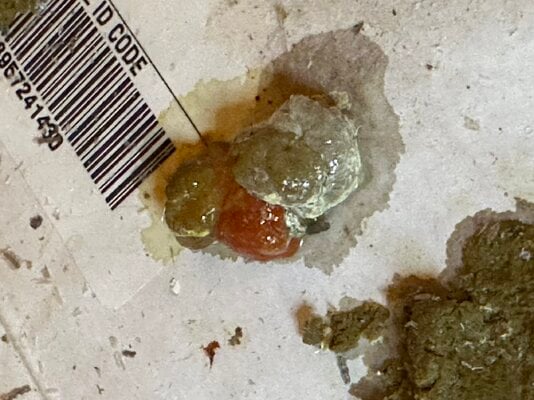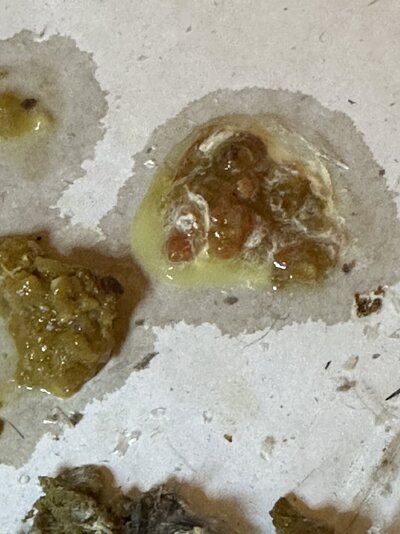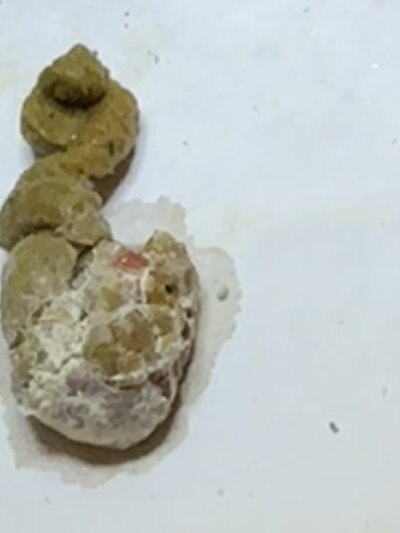These stools appear to have a blood/bloody substance in them. The stools are from my 1 month old chicks, which are integrated in to my flock of 25 mature chickens. I have 14 chicks, and found only 3 piles of poop w/ red in the morning, so I’m thinking it’s only 1 or 2 chicks.
No signs of illness in the chicks or adult birds. No sign of red anywhere on the entire poop board for the 25 adults.
Please excuse the cardboard- I cleaned the coop & brooder last night, but ran out of time to make a new hood for the feeder (which the babies roost above) so I tossed a piece of white cardboard over it, making these stools & the red color really stand out.
I probably won’t be able to get a fecal float done this week. I’m debating between treating with Corrid or taking a wait and see approach since it seems to only be 1 affected chick. I’d love a second opinion.
The flock was last treated with Safegard back in June and Corrid in August.



No signs of illness in the chicks or adult birds. No sign of red anywhere on the entire poop board for the 25 adults.
Please excuse the cardboard- I cleaned the coop & brooder last night, but ran out of time to make a new hood for the feeder (which the babies roost above) so I tossed a piece of white cardboard over it, making these stools & the red color really stand out.
I probably won’t be able to get a fecal float done this week. I’m debating between treating with Corrid or taking a wait and see approach since it seems to only be 1 affected chick. I’d love a second opinion.
The flock was last treated with Safegard back in June and Corrid in August.







